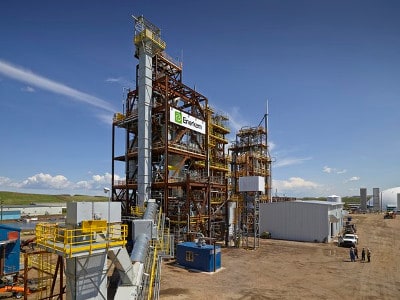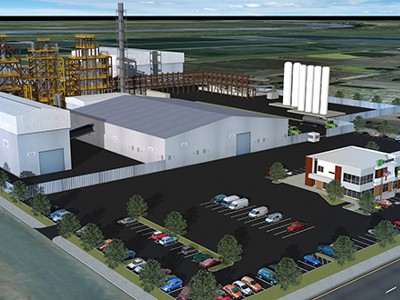Montreal's Enerkem hints at IPO for waste-to-biofuels technology

 Enerkem Inc. CEO Vincent Chornet was on Bloomberg TV Canada yesterday, chatting through a news piece entitled “Looking at market conditions before any IPO”, strongly hinting that the company may be interested in an IPO, but is keeping their eye on the health of the public markets “in the months to come.”
Enerkem Inc. CEO Vincent Chornet was on Bloomberg TV Canada yesterday, chatting through a news piece entitled “Looking at market conditions before any IPO”, strongly hinting that the company may be interested in an IPO, but is keeping their eye on the health of the public markets “in the months to come.”
The very tone of the interview points to a hunger on the part of investors for companies that aren’t in the oil and gas sector to list on the TSX.
Headquartered in Montreal, Enerkem’s main plant in Edmonton is helping the Alberta government diversify its economy, turning no-value garbage from landfill into fuel, as well as other types of chemicals and materials.
It’s a business model in which Enerkem is getting paid to haul away the raw material, garbage from landfills, to create a new product, turning solid household waste into biomethanol.
With waste disposal companies being hit with “tipping” or disposal fees, an incentive is created for waste to go somewhere other than into a landfill, enabling Enerkem to charge a waste disposal fee.
Enerkem was one of two companies to accompany the Canadian contingent to the COP21 conference in Paris in December.
In September, Enerkem raised $152.6 million Cdn. to initiate production of biomethanol from non-recyclable garbage at the Enerkem Alberta Biofuels facility in Edmonton.
With the opening of the Edmonton plant, the city was able to boost its waste diversion rate from 60% to 90%.
In areas of the country where there are no consumer recycling programs, this type of facility represents a tremendous opportunity to create something new from waste.
But urban centres, too, are running out of landfill space in Canada, the U.S. and Europe.
Describing Europe as one of Enerkem’s “key markets”, Chornet says, “We have a number of developments in Europe. One of them is in Rotterdam, in partnership with AkzoNobel. So chemical groups are also turning to adding renewable chemicals to their existing product lines, as their customers demand more and more bio-content.”
Asked to put into context how much fuel is being generated out of the Edmonton facility, Chornet says, “This is enough ethanol for 400,000 cars running on a 5% ethanol/gasoline blend, which is the blend that is in use in Canada. So it’s a significant contribution to the fuel pool in an urban centre like Edmonton. Globally, ethanol from waste, biomethanol from waste, could contribute to as much as 15% of our fuel needs.”
Fuel is not the only product that Enerkem can produce from landfill garbage.
Specialty food additive chemicals, cosmetics, lubricants, plastics, coatings, spray foam insulation and a wide array of products along those lines are also possible.
The Edmonton Enerkem is being closely watched as the world’s first commercial biorefinery capable of turning garbage into methanol and ethanol.
With companies like Lego recently announcing that it will invest $150 million over the next 15 years, as well as BASF and DuPont and others making tentative first steps into making their products both more environmentally friendly and profitable, the bio-energy sector looks to still be in its infancy.
Asked the question “Why not go public?”, Chornet replies, “We’ve been quite successful running our business as a private enterprise. We’ve raised close to $400 million in private equity and finance. So, so far, we’ve not seen any need to look at the public markets. We’ve got a number of options to fund the next Enerkem facilities. Obviously, we’re always interested in the public markets, and we’ll be tracking how they evolve this year, and how the IPO market more specifically evolves.”
Given the global nature of the company, Chornet suggests that if Enerkem were to go public, it would make sense for the company to dual-list on both American and Canadian stock markets.
Watch the full interview here: Part 1 and Part 2.

Terry Dawes
Writer


